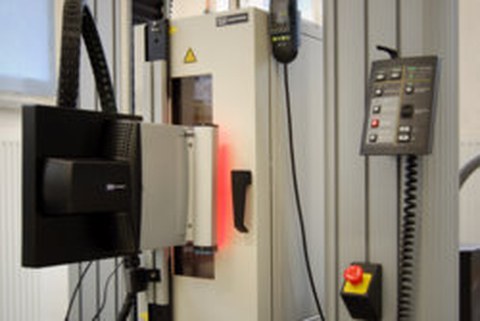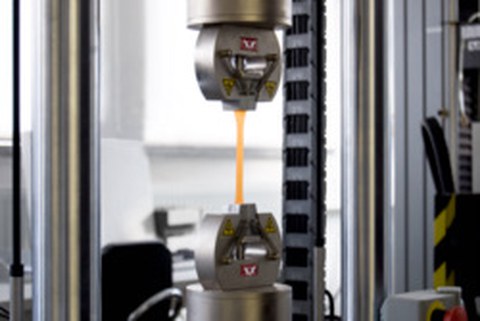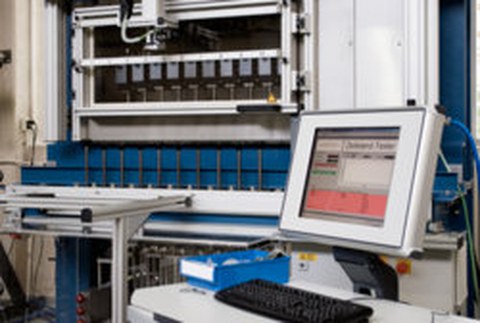mechanical testings
Fields of application
The assessment of the suitability of innovative materials for applications such as construction, mechanical engineering or photovoltaics requires fundamental experimental investigations to determine material characteristics and strengths. In the adhesive and plastic technology, numerous mechanical investigations are carried out on pure material test pieces, joined parts, laminates and glued joints. The test scenarios should be as accurate as possible to represent the real stresses. Therefore tests are carried out at different temperature levels and test speeds as well as under dynamic and static long-term loads.
Methods
The universal testing machine (UPM) enables the material characterization and the strength testing of various materials, material composites and smaller components by means of tensile and compressive tests. The stand with a double-column test frame allows tests up to a maximum load of 50 kN. The equipment covers a broad range of applications, especially for the adhesive and plastic testing, both with respect to the nominal load ranges as well as with respect to the available clamping elements. Possible test types include tensile, compressive, shear force, deflection, peeling, tearing and bending tests. With the two-axial video extensiometer, deformations can be measured without contact. The integrated temperature control chamber has a temperature range from -70 ° C to 250 ° C, so that all tests can be run at high or low ambient temperatures.
The electrodynamic testing machine (EPuls) provides a state-of-the-art, hydraulically-free test system for dynamic and static testing of materials and components. The system is primarily used for extended material descriptions and for the investigation of material fatigue. Cyclic loads are possible in a nominal load range of ± 3 kN and with frequencies of up to 100 Hz. In addition to the recording of force and traverse path, a dynamic strain transducer allows direct measurement on the sample. The test specimens can be subjected to different wave functions such as sinusoidal or trapezoidal cycles. The control software can be used to combine various individual steps into complex test sequences. Furthermore, the temperature development during the tests can be documented with the aid of a thermal imaging camera.
The fully automatic time-keeping system with 10 measuring points is used to investigate the creep behavior of adhesives and plastics as well as smaller joints. The load of up to 10,000 N per sample is applied via a lever system and static weights. Counterweight sets also allow extremely low loads of a minimum of 2 N. The strain measurement is carried out without contact with a mobile CCD camera. The test chamber can be tempered in a range of -20 °C to 150 °C. The system is equipped with a pneumatic loading system so that the load on the samples with the weights is always uniform. The introduction of additional energy into the sample is thereby avoided, which is decisive in particular for the quality of the measuring results, particularly in the case of ductile material. Shock absorbers prevent impingement on neighboring test points in case of failure of a sample.



